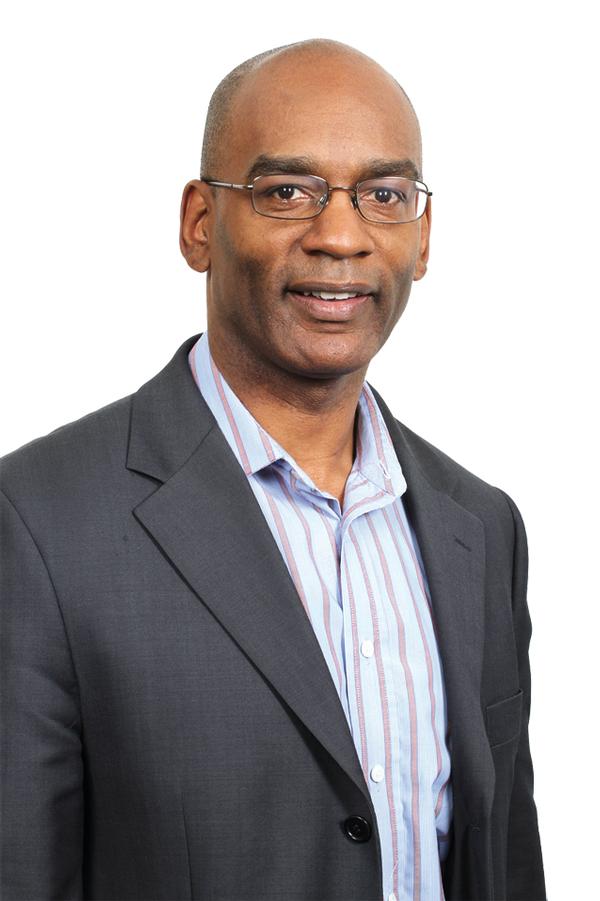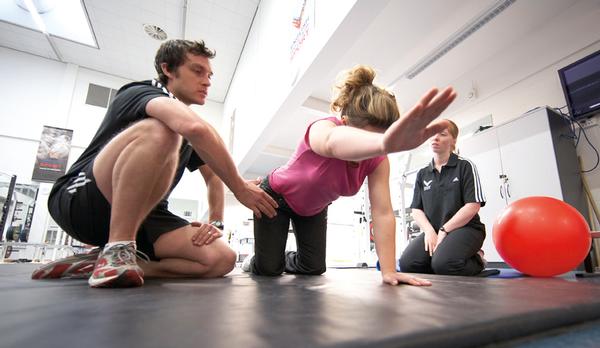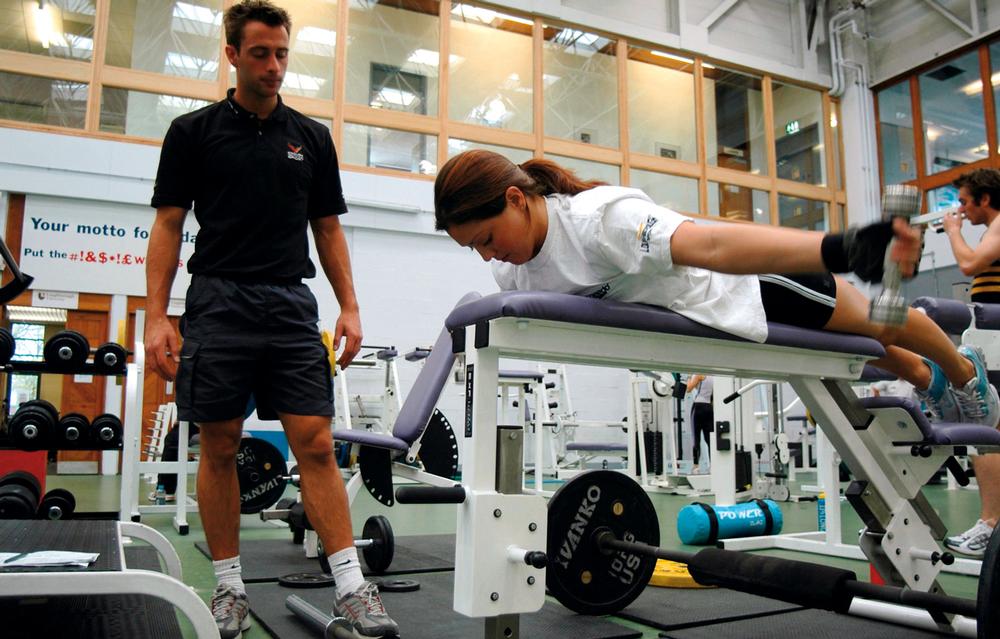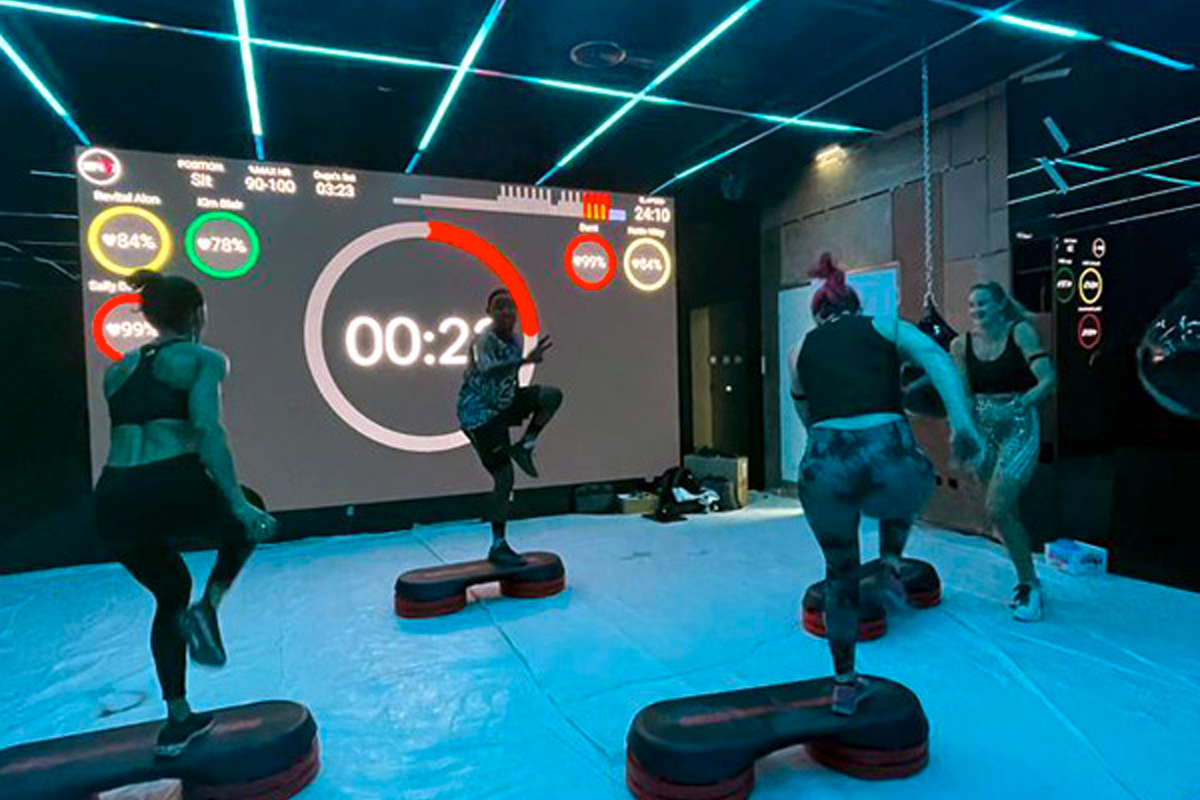Nigel Walker
Karen Maxwell talks to the national director of the English Institute of Sport (EIS) about the performance impact that EIS practitioners are offering elite athletes in the run-up to London 2012
Can you tell me about your career background?
A former Olympic high-hurdler and rugby union player, I was a development officer for the Sports Council for Wales and assistant team manager with the Welsh Rugby Union, before becoming the head of sport at BBC Wales in 2001. I then became head of change and internal communications in 2006 before being given the added responsibility of programme director for BBC Wales’ drama village in 2009 while retaining board responsibility for sport.
I joined the UK Sport board in 2006 and was appointed chair of the Major Events Panel in the summer of 2009. I left the BBC to take the role of national director of the English Institute of Sport (EIS) in September 2010.
Why did you join the EIS?
With the London Games on the horizon it appeared to me to be a fantastic opportunity.
At the EIS we like to think of ourselves as the ‘team behind the team’. We have more than 250 practitioners that deliver 4,000 hours of sport science and sport medicine each week to more than 40 Olympic and Paralympic sports – along with a select number of non-Olympic sports, including Premier League football, Premiership rugby union, rugby league and cricket. We also work with 16 of the 17 Paralympic sports represented by ParalympicsGB.
What is the EIS modeled on?
Publically funded by UK Sport and the national governing bodies (NGBs) that use our services, the EIS is only 10 years old so it’s a relatively young organisation. World champion netball player and coach Wilma Shakespeare was the first national director. She came over from Australia to establish the EIS, so you could say it was modeled on the Australian Institute of Sport – although we’ve adapted, changed and manipulated it to our benefit.
Our vision is to be the world’s leading sports medicine/science organisation within elite sport so we observe what’s going on at sports institutes in Switzerland, in Germany and in Australia to name a few. We all have a regular, mutually beneficial dialogue and of course they are keen to learn from us, as Britain is regarded as a nation that’s able to punch above its weight in sport performance.
How does the EIS strive to extend the elite performance of UK athletes?
Some way down the line we’ll reach the stage where a human being will not be able to run any faster. We may be able to scrape a couple of 100ths here or there but we’re pretty much at our physical limit and that’s why research and innovation in all its forms is so important.
Sport in the UK has been incredibly well funded, particularly over the past six or seven years, and the structures that we’ve been able to put into place have helped us to achieve amazing results in world sport. We finished fourth in the medal table at Beijing 2008 – although we’re not the fourth largest nation in the world by any imagination. Our target is to continue this momentum and achieve fourth again at London this summer.
What does your day-to-day role entail?
I’m an MBA graduate, so organisation and managing change is at the heart of everything I do.
I’ve been a team member during my sporting days so I feel I know what it takes to put a good team together and unite as one for a single goal.
The EIS is split into three directorates: the north, central and the south. My job is to ensure that we offer a consistent and flexible service delivery across all these areas by putting the performance impact of the athlete and the impact of that sport
First and formost, it’s all about getting the greatest bang for the government’s buck with EIS multi-disciplinary teams – including physiotherapists, psychologists, nutritionists and performance lifestyle practitioners – working together so that the performance impact is greater.
Our ‘one EIS one vision’ gives practitioners regular contact with senior people on a regular basis. This allows us to talk about the organisation’s objectives and listen to any comments that they may have. I make regular visits to the EIS sites and I’ve made it absolutely clear that I’m there for them to talk to me because I want to understand the issues that they face from a sport or personal perspective.
I’m definitely not an autocrat, I’m a democrat through and through, but the important thing is that people feel that they can discuss issues with me and I’ll raise them further down the line in a sensitive matter so we can work out a solution.
What is the EIS working on at the moment?
We’re already looking at our service offer up to and including the next Olympic cycle (2013 to 2017) and have formally submitted our business plan to the funding body – UK Sport.
Everything we do fits into three categories: innovation, collaboration, and excellence. If a service doesn’t satisfy one or more of this criteria and it doesn’t provide a performance impact we have to ask ourselves: “why are we doing it?”
The EIS recently joined UK Sport on a series of roadshows around the country, where we were able to talk to many NGBs about their strategy to get the best out of their elite athletes, to ensure that our services continue to fit with their demands.
Getting everyone on the same page and moving in the same direction takes quite a bit of ‘behind the scenes’ negotiation. However, UK Sport is always keen to offer assistance to close the gap on a sport’s weaker areas and help produce better results in the long-term and we’re here to help them do that.
In a recent survey, we asked NGBs to rate us out of a score of 10 in our range of different services. The data revealed that we’re doing an even better job than we were in 2010. However, sports medicine is one area that needs improvement. It’s a very expensive service so we’re continually making sure that we are offering value for money and providing the service that NGBs want and need.
To this end we are currently working on extending doctors’ hours to ensure that they become a true part of the EIS multi-discipline team.
Within the EIS, we believe that putting talented people in the right places allows for maximum impact in helping athletes achieve their best. For example, we provide CPD and on-job training to make sure that [for example] Level 1 practitioners with potential move on to Level 2 and Level 3 in the shortest time possible – giving them the opportunity to progress rather than standing still.
What role will EIS practitioners take at the Olympic and Paralymapic Games in London this summer?
Many of our practitioners have been approached by the London Olympic and Paralymapic Games Organising Committee (LOCOG) and the British Olympic Association (BOA) to volunteer their services at the Games. We told them that if they are approached they should let their line manager know, put in an application and we will endeavour to provide the necessary backfill to ensure their obligations to the sport they work with are covered.
As a consequence, tens of EIS people will be working in a volunteer capacity at the Games and we will continue to pay their wages because we see their service as being part of our role and a great opportunity for them to gain experience.
What about an athlete’s life after sport, does the EIS offer advice or support?
Many full-time athletes who have focused on their sport sincethe age of 15 or 16 and then have [for example] a 17-year career in elite sport, can find adapting to ‘normal’ life quite difficult.
Our performance lifestyle advisors offer a 360-degree service to ensure that an athlete is as well rounded as they possibly can be so they can get the most from their everyday sporting lives and lead a normal life afterwards.
Our team of advisers includes an ex-Olympian as well as people with life experience that can empathise with finding a new career, applying for a mortgage or dealing with an injury or a relationship break-up – it’s all about balancing a lifestyle both in and out of elite sport. We also help athletes find temporary employment opportunities to develop their skill set and prepare for life outside of sport.




Team Leader (Harrow School Fitness Club)
Centre Manager (Leisure)
Director of Operations
Fitness Motivator
Recreation Assistant/Lifeguard (NPLQ required)
Membership Manager
Recreation Assistant
Swim Teacher
Swim Teacher
Chief Executive Officer, Mount Batten Centre
Swim Teacher
Swimming Teacher
Swimming Teacher
Company profile

Featured Supplier

Property & Tenders
Company: Knight Frank
Company: Belvoir Castle
Company: AVISON YOUNG
Company: London Borough of Bexley
Company: Forestry England














